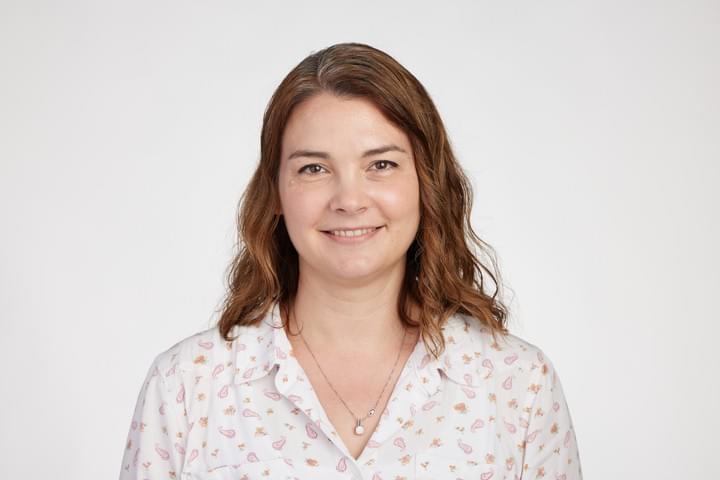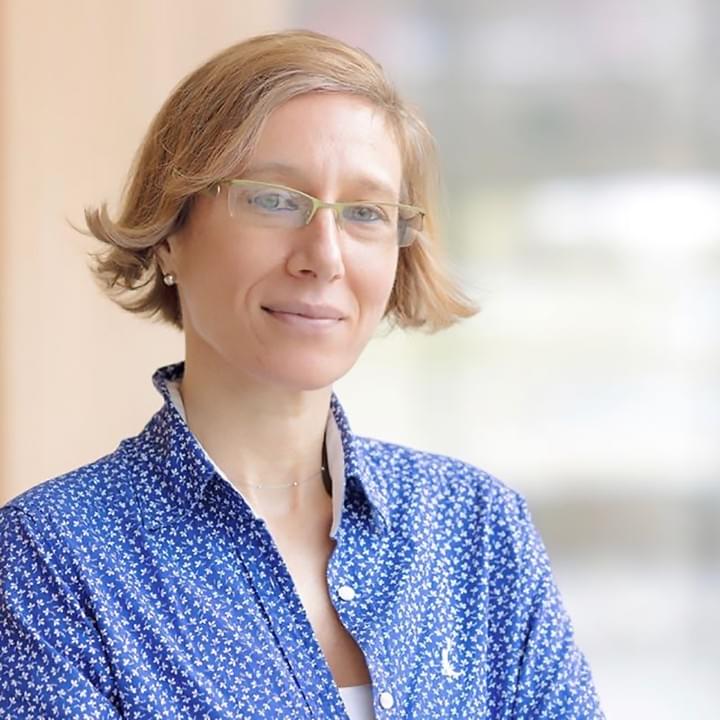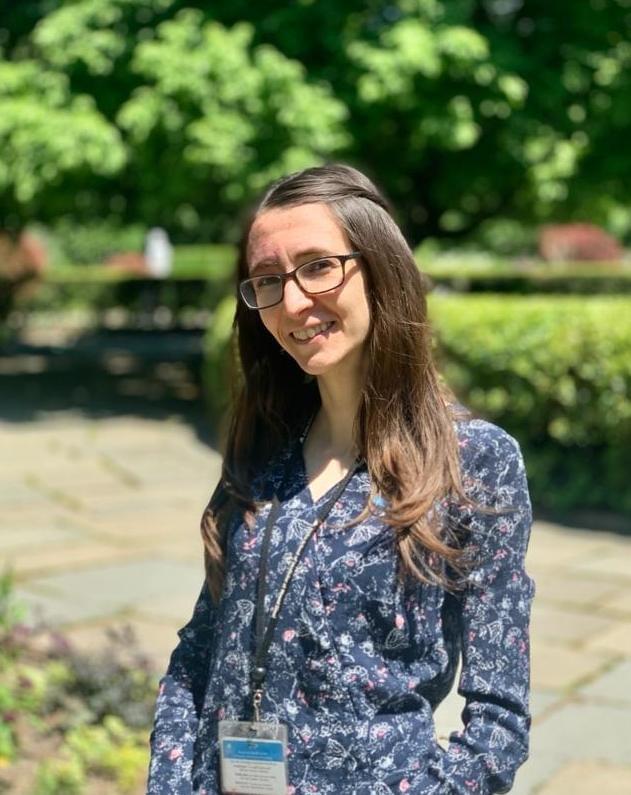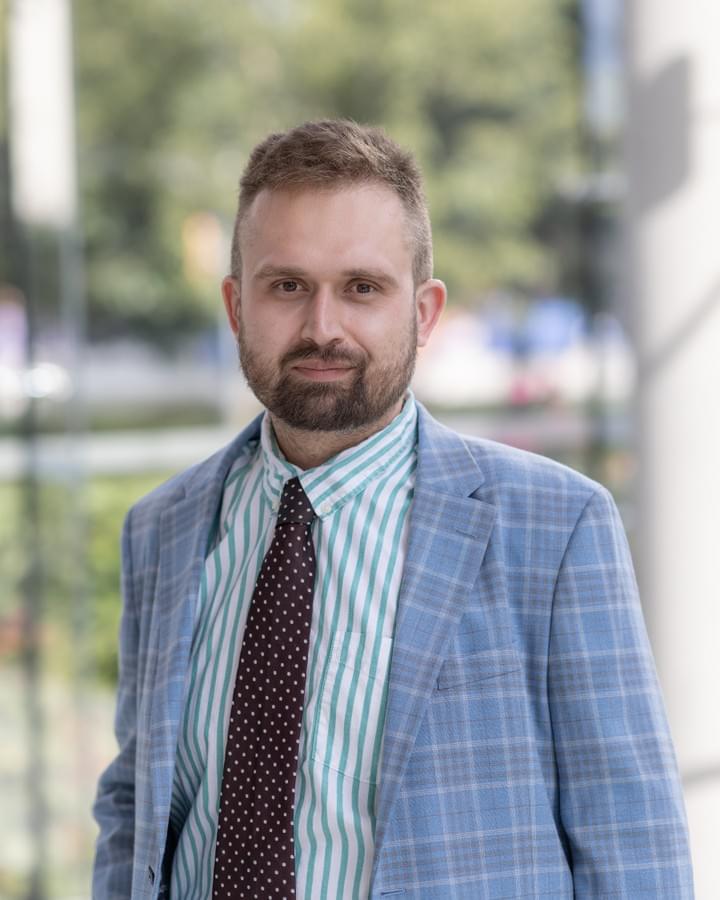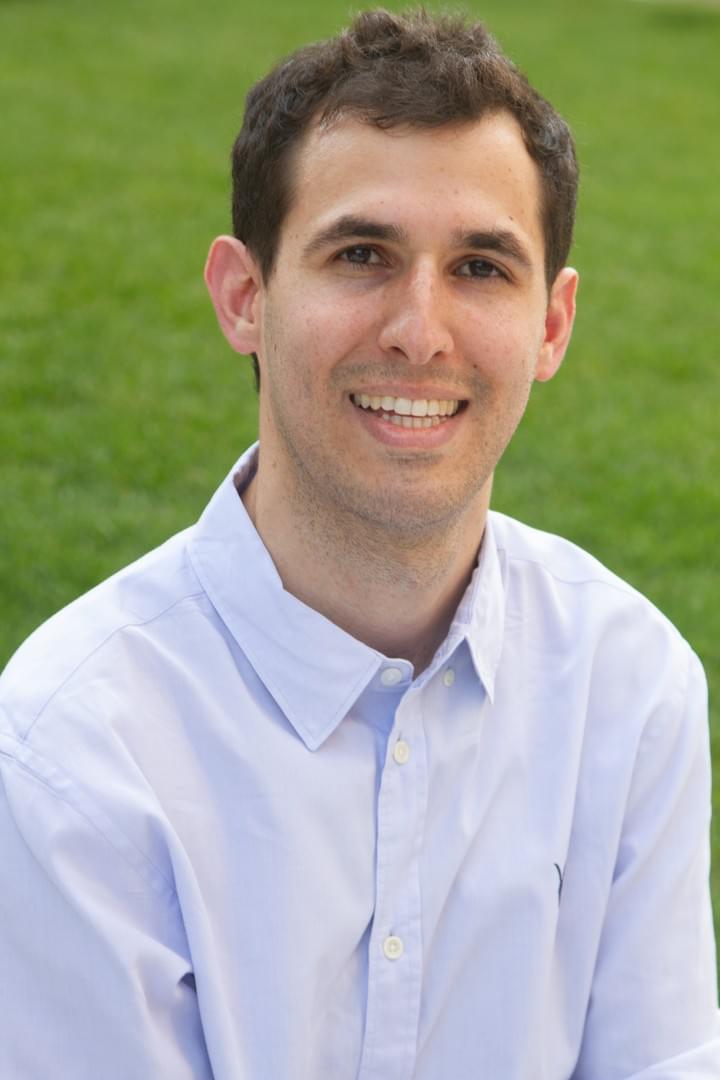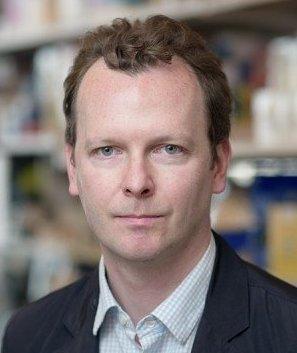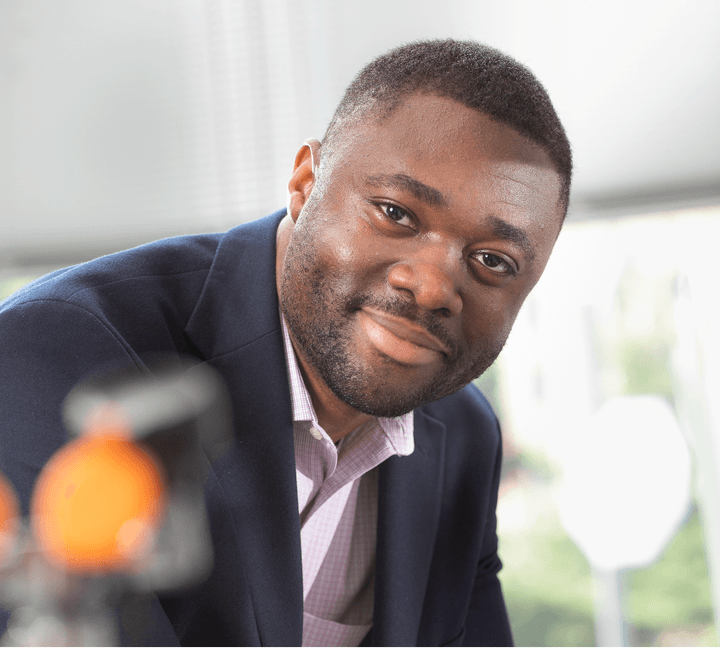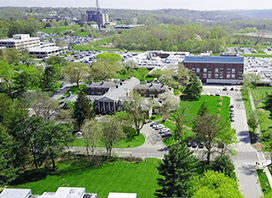

The New York Regional Diabetes Research Center presents:
The Norman Fleischer
NYC Regional Diabetes Symposium
May 9, 2025
Bringing together researchers to discuss the latest diabetes science
About the Symposium
The 2025 Norman Fleischer NYC Diabetes Symposium will be held on May 9, at the
NYU Langone Health Schwartz Lecture Hall E Auditorium.
The primary aim of the Norman Fleischer NYC Diabetes Symposium is to provide a forum that promotes professional interaction and facilitates collaboration across institutions in the New York City Metropolitan Area.
The Symposium also aims to foster increased awareness of research and to promote multi-site collaborative projects across the many regional institutions. An emphasis is placed on enabling junior faculty, postdoctoral fellows, fellows and doctoral students to interact with each other as well as with senior faculty and professionals.
The Symposium will, create opportunities for researchers to present their work and enhance career opportunities for junior investigators.
We encourage scientists, clinicians, and other professionals working on diabetes and related traits in academic or other settings to attend the Symposium.
Learn more about the Fleischer Institute for Diabetes and Metabolism and Dr. Norman Fleischer, M.D.
Online registration is CLOSED
FREE day-of registration is allowed
(no lunch provided)
Abstract Submission is CLOSED
Symposium registrants are encouraged to submit a scientific abstract. Abstracts may be original or proposed research topics from the following categories:
- Metabolism, signaling and Integrative Physiology
- Diabetes technology
- Clinical - therapies, trials, interventions, care or education
- Genetics/Epigenetics, Lifestyle and the environment
- Diabetes-associated diseases
- Pathogenesis, epidemiology or etiology
A committee, comprising scholars from participating Institutions, will review submitted abstracts.
- The top 5 abstracts will be awarded short oral presentations -
All remaining abstracts will be eligible for poster presentations
"Best Poster Awards" certificates and Amazon gift cards will be presented to the eligible top three scoring posters (1st $300, 2nd $200 and 3rd $100)
Download the 2025 Agenda!
Speakers
HAROLD RIFKIN LECTURE

E. Dale Abel, M.D., Ph.D.
William S. Adams Distinguished Professor of Medicine
Chair and Executive Medical Director
Department of Medicine
David Geffen School of Medicine and UCLS Health
E. Dale Abel, MD, PhD is the William S. Adams Distinguished Professor and Chair for the Department of Medicine at the David Geffen School of Medicine at UCLA, and Executive Medical Director at UCLA Health.
Dr. Abel has had a distinguished career in endocrine and metabolism research. His pioneering work on glucose transport and mitochondrial metabolism in the heart guides his current research interests: molecular mechanisms responsible for cardiovascular complications of diabetes. His laboratory has provided important insights into the contribution of mitochondrial dysfunction and aberrant insulin signaling, to heart failure risk in diabetes.
Dr. Abel’s research program has been continually funded by the National Institutes of Health since 1995, and by the American Heart Association, the American Diabetes Association, and the Juvenile Diabetes Research Foundation. Dr. Abel is the recipient of numerous awards for scholarship and mentorship, including awards and endowed lectureships such as the Fred Conrad Koch Lifetime Achievement Award of the Endocrine Society, the 2018 African American Museum of Iowa History Makers Award. He is an elected member of the American Association of Physicians (AAP), the American Society for Clinical Investigation (ASCI), the American Clinical and Climatological Association (ACCA), the National Academy of Medicine (NAM) and the National Academy of Sciences (NAS). He is past President of the Endocrine Society and the Association of Professors of Medicine.
Learn more about the department's work and Dr. E. Dale Abel's accomplishments here.
INVITED SPEAKERS

Jessica L Ables, M.D., Ph.D.
Assistant Professor, Departments of Psychiatry and Neuroscience
Icahn School of Medicine at Mount Sinai
Jessica L Ables is a physician-scientist trained in the basic neurobiology of mood and substance use disorders and clinically trained in Psychiatry. She received her PhD from UT Southwestern Medical Center in 2009 before transferring to the Icahn School of Medicine at Mount Sinai to complete her MD in 2011. She then completed a postdoctoral fellowship at Rockefeller University in 2015 before returning to Mount Sinai for residency training in Psychiatry. She joined the faculty at Mount Sinai in 2019 and is active in both basic and clinical research and am the medical director of the Spavato Program for Treatment Resistant Depression. The Ables lab is interested in understanding how diabetes affects reward circuitry at the molecular, cellular and circuit levels and how these changes result in altered behavior, including altered feeding choices and vulnerability to stress and addiction.

Brenda Dorcely, M.D.
Clinical Assistant Professor, Holman Division of Endocrinology, Diabetes, & Metabolism, Department of Medicine
NYU Langone Health
Dr. Brenda Dorcely is a Clinical Assistant Professor for the Holman Division of Endocrinology, Diabetes, & Metabolism at NYU Langone Health. Her research focuses on obesity, continuous glucose monitoring, early dysglycemia detection for diabetes prevention, and the impact of metabolic disorders on white blood cell inflammation. Dr. Dorcely’s current work investigates the changes in white blood cell inflammation before and after weight loss from bariatric surgery in individuals with and without diabetes.

Carolina Eliscovich, Ph.D.
Assistant Professor, Department of Medicine (Hepatology) and Department of Developmental and Molecular Biology
Albert Einstein College of Medicine
Dr. Eliscovich graduated in molecular biology at the University of Buenos Aires, Argentina; and did her PhD in mechanisms of localized mRNA regulation by RNA-binding proteins at the Centre for Genomic Regulation in Barcelona, Spain. She subsequently moved to New York and did a postdoc at Albert Einstein College of Medicine where she developed unique professional expertise in single-cell and single-molecule fluorescence microscopy and RNA biology in cells and tissues. She recently became interested on studying the cell biology of RNAs in their native context in the liver tissue. Her current research program at Einstein focuses on the development of RNA imaging technology using fluorescent-labeled probes to directly visualize —both at the tissue-level and the intracellular-level— the spatial organization of mRNAs in the healthy and regenerating liver as well as their dysregulation in metabolic diseases such as insulin resistance and diabetes.

Maria Jimenez Gonzalez, Ph.D.
Instructor, Diabetes, Obesity, and Metabolism Institute,
Icahn School of Medicine at Mount Sinai, NY
Maria Jimenez Gonzalez is an instructor in Dr. Sarah Stanley’s laboratory at the Diabetes, Obesity, and Metabolism Institute, Icahn School of Medicine at Mount Sinai, NY. She earned her PhD in Molecular and Cellular Biology from the University of Navarre, Spain.
Dr. Jimenez Gonzalez’s research focuses on investigating the connection between the pancreas and the peripheral nervous system, particularly the role of neural inputs in pancreatic function and diseases such as diabetes.
Utilizing cutting-edge techniques, she integrates 3D imaging of the pancreas with tissue-specific neuromodulation to examine the impact of autonomic innervation on islet function, glycemic control, and disease progression in mouse models of diabetes.

Stanislovas “Stanis” Jankauskas, Ph.D.
Research Assistant Professor, Department of Medicine (Cardiology)
Albert Einstein College of Medicine
Stanis graduated from Pirogov Russian National Research Medical University in 2011 and earned his PhD from Moscow State University, where he investigated mitochondria-targeted strategies to mitigate mitochondrial dysfunction and organ damage. He was a visiting scholar at University Hospital RWTH Aachen in Germany. In 2019, he completed a postdoctoral fellowship at NYU, focusing on iron metabolism alterations in metabolic disease. From 2020 to 2024, he worked at the Albert Einstein College of Medicine in the Gaetano Santulli Lab, leading multiple projects on the role of mitochondria in ferroptosis, β-cell dysfunction in post-acute COVID sequelae, and the non-metabolic functions of ketone bodies.

Alexander R. Nectow, M.D., Ph.D.
Principal Investigator, Department of Medicine
Columbia University
Alexander R. Nectow is a clinician-scientist and a Principal Investigator on the faculty of Columbia University’s Department of Medicine. He received his B.S. and M.S. degrees in Engineering Science and Biomedical Engineering, respectively, from Tufts University in 2011. He earned his PhD from Rockefeller University in 2015, during which he developed novel molecular profiling technologies and identified the dorsal raphe nucleus as a key node regulating food intake. Shortly after completing his PhD, Alex started his laboratory as a CV Starr Fellow at Princeton University’s Princeton Neuroscience Institute in 2016. Alex then joined the faculty of Columbia University’s Department of Medicine in 2019, shortly before completing his MD in 2020. While continuing to run his lab, he concurrently completed an internal medicine residency through the clinician-scientist pathway at NYP-Columbia. He is currently completing a clinical fellowship in cardiology, also at NYP-Columbia.
Alex has been recognized with a number of honors and awards, such as The Rockefeller University’s David Rockefeller Fellowship, Princeton University’s CV Starr Fellowship, Columbia University's Titus Munson Coan Prize, the American Society for Clinical Investigation's Emerging-Generation Award, and the American Diabetes Association’s Innovative Basic Science Award and Pathway to Stop Diabetes Accelerator Award. He was also recently a NARSAD Young Investigator.
The Nectow lab works on the neurobiology of cardiometabolism. We are working to understand the molecular, cellular, and circuit mechanisms governing appetite, as well as cardiovascular physiology

David Redmond, Ph.D.
Assistant Professor of Computational Biology,
Weill Cornell Medicine
David Redmond is an Assistant Professor of Computational Biology at Weill Cornell Medicine. His research focuses on pancreatic-specific microvascular endothelial cells for the treatment of diabetes.

Shannon Reilly, Ph.D.
Assistant Professor of Metabolic Health in Medicine,
Weill Cornell Medicine
Shannon Reilly is an Assistant Professor of Metabolic health at Weill Cornell Medicine. The Reilly lab is working to uncover the signaling pathways regulating adipocyte metabolism and the role they play in whole organism energy balance and metabolic health.

Mark A. Rossi, Ph.D.
Assistant Professor of Neuroscience & Cell Biology and Psychiatry
Resident Scientist, Child Health Institute of New Jersey
Core Member, Brain Health Institute
Rutgers University - Robert Wood Johnson Medical School
Mark Rossi is an Assistant Professor in the Departments of Neuroscience & Cell Biology and Psychiatry at Robert Wood Johnson Medical School and Rutgers University. He is also a resident faculty member of the Child Health Institute of New Jersey and core member of the Rutgers Brain Health Institute. His research focuses on the neurobiological systems controlling motivation and how dysfunction within these systems contributes to obesity pathogenesis. His lab uses rodent models of human disease to study neurocircuit control of energy balance and link brain activity to behavior. Central to his research program is the development of methods to allow longitudinal tracking of individual neurons in deep brain regions using in vivo multiphoton microscopy. His research has uncovered mechanisms by which subcortical neurocircuits integrate information about motivational state to guide feeding behavior during obesity. The Rossi lab currently investigates the contributions of distinct hypothalamic neuron populations to obesity pathogenesis. Dr. Rossi completed his undergraduate studies at the University of Michigan. He then completed his Ph.D. in Psychology and Neuroscience from the Systems and Integrative Neuroscience Program at Duke University followed by postdoctoral training in neurobiology at the University of North Carolina and then at the University of Washington.

Yvon L. Woappi, Ph.D.
Assistant Professor, Department of Physiology & Cellular Biophysics
Herbert and Florence Irving Assistant Professor, Department of Dermatology
Department of Biomedical Engineering
Columbia University
Dr. Yvon Woappi is the Herbert and Florence Irving Assistant Professor of Physiology and Cellular Biophysics, Dermatology, and Biomedical Engineering at Columbia University. His research focuses on gene editing and multiomic technologies to uncover how cellular heterogeneity influences tissue repair – a process critical to wound healing, diabetic ulcers, and carcinomas. Dr. Woappi earned his Ph.D. as a Grace Jordan McFadden Fellow at the University of South Carolina and completed his postdoctoral training in the Harvard Dermatology Research Training Program at Harvard Medical School. Dr. Woappi’s pioneering early-career research is laying the foundation for synthetic wound regeneration, a systems bioengineering approach that leverages cellular heterogeneity to enhance tissue repair and regeneration. He also serves as a principal investigator of an NIGMS R00 MOSAIC award and is a dedicated mentor committed to fostering the next generation of scientists.
Participating Institutions
Fostering collaborations across regional institutions

Albert Einstein College of Medicine

Icahn School of Medicine at Mount Sinai

Columbia University Irving Medical Center


Weill Cornell Medicine

New York Medical College

The Rockefeller University

Rutgers New Jersey Medical School
Support
The Symposium is made possible thanks to generous support from:
Contact Us

